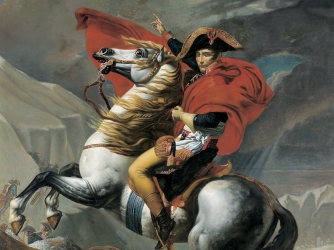
The French Revolution, beginning in 1789, was sparked by a variety of factors surrounding the rising social and economic inequality across the nation leading up to its inception. Enlightenment ideas, along with major political mismanagement by King Louis XVI inspired the revolution and its end goal of political realignment. Various decisions made by the monarchy, along with poor crop yields left the non-elite classes in economic distress, which contributed in a major way to the beginning of the nationwide revolt. Enlightenment pamphlets and newspapers allowed resentment towards the crown to spread and inspire the dismantling of the revolution quickly and effectively. An angry population with mobilized ideas created the perfect storm for the revolution to begin.
The Third Estate, a collection of non-elite members of the voting society and represented 98% of the French population, convened in 1789 in an attempt to gain greater voting power as they could be vetoed by the stronger elite classes. The third estate took a stand against the crown, and demanded constitutional reform that King Louis XVI eventually accepted. With the new national assembly in place, and a new constitution in the works, the people of Paris took their frustrations to the streets. They stormed the Bastille fortress to take gunpowder and weapons, and this event has been widely accepted as the true start of the revolution. With the urban populace rioting, revolutionary ideas swept through the French countryside as well. Peasants turned against the feudal system that had held them down for so many years, and burned numerous homes owned by tax collectors and landlords. In August of 1789, an order was passed that banned the feudal system completely in response to these revolts. This order made waves large enough to hurt the monarchy, which allowed for the eventual overthrow by French revolutionaries.
 |
| Napoleon Bonaparte (1769-1821) |
The French Revolution had global impacts, inspiring revolts in many French colonies and shifting the political landscape of Europe for years to come.
http://www.newworldencyclopedia.org/entry/French_Revolution
http://chnm.gmu.edu/revolution/
https://history.state.gov/milestones/1784-1800/french-rev